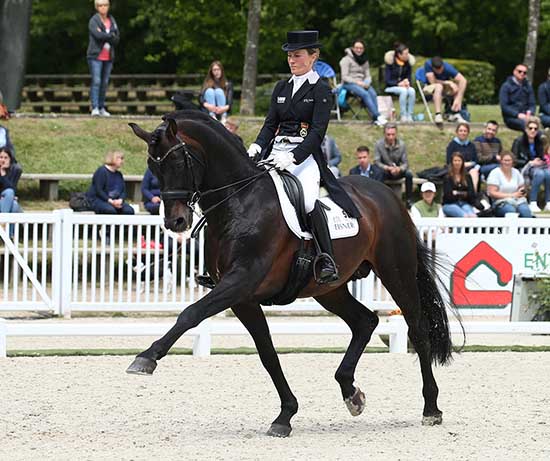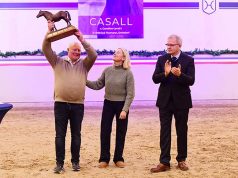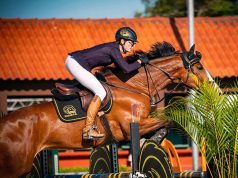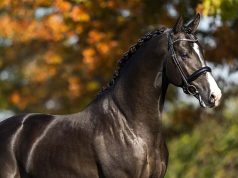By Christopher Hector
Photography: FEI/PSV Morel
Jens Meyer was born and raised a Hanoverian breeder. His father before him was a breeder of licensed stallions and Jens, as a young man, learnt his craft at the State Stud Celle before setting up one of Germany's powerhouse stallion stations – Hengststation Jens Meyer. There, he stood, amongst others, His Highness, Falsterbo, Dacaprio, Cashman and Herzensdieb.
Nowadays, Meyer has cut back on the stallion involvement, although his wife is the part owner of Damsey, another horse that her husband discovered. Jens Meyer has a busy career judging all over the world, and acting as an advisor to the Blue Hors Stud. I caught up with him at the KWPN stallion show, and was just a little surprised to find that this died-in-the-wool Hanoverian breeder, was now a big fan of the Dutch horse.
“I like that they have the philosophy to produce dressage horses and not just foals. When you listen to Bert Rutten really carefully, he’s a horse breeder, he rode Grand Prix, and when he talks about the horses, there is an idea you can follow. When he talks about the walk he is not just talking about over track, he is talking about the right rhythm, and if horses have this they are going to be able to do piaffe. He has these ideas, and he gives them to the breeders, so they are not just looking for medium trot.
“I saw all 400 or 500 horses they had in the pre-selection. It begins on hard ground and you see what they are looking for, and how they are looking for that. Also, there are not seven people on the licensing commission, there’s three, and with three people it can work. If you have seven, oh, this leg, and, oh, did you see that, with three it is much easier to see black or white.
“They are clever how they run their stallion show. They sell the tables for the guests, and it is quite expensive to buy a table, even a regular seat is €47. In Germany, the crowd pays nothing, everyone is in for free. What is the result? The stallion keepers have to pay for the show, so the pressure is really on that the horses get sold for a lot of money, but for us – like Blue Hors – I think this is a very big gamble to pay those big prices, but here in Holland, there is not so much pressure, the prices are not so high.”
Q What horses did you like?
“I was really impressed that the Totilas offspring are really good, Total Jr, also. Interesting horses...”.
Q But he needs a good strong mare, or you get a pony...
“Good, I am with you, to breed with this bloodline and conformation is one thing, but we are not Trakehner breeders or Arab breeders, we have to breed a functional horse that is able to do a Grand Prix, so what you can see when you see these horses is that you are not just aiming to breed a pretty one. The Dutch horse and the German horse breeding together, when it produces a good one, it is a really good result. For the German breeders, we get from the Dutch more canter because we don’t select on canter. For me the front leg is very important, and if you have a combination of both, you get a better back, you get it in the hind that they are stronger, so that is the really good breeding for today.”
Q But I thought often, especially the spectators, they seemed to like the horses that are very tense, very tight in the back with very spikey movement, and it’s the same problem still with their riders. Look at the difference at the recent Amsterdam show, the top horses were German and they were top because they go in a calm, correct manner, while the top Dutch horses still look very tense and 'spectacular' in a bad way...
“But this is the generation they were breeding 20 years ago, and you remember 20 years ago when we sat together at the KWPN stallion show, I didn't like the Dutch breeding, I was a traditional German breeder. But today, I can see Grand Prix horses for the future, and I am very proud that I have found there is something in between. And that something in between is for me, very interesting, that we now have to talk about European breeding, not Hanover, not Oldenburg, not Westfalia, breeding is coming from all over Europe, and for the horse breeders this is a big chance for us to get good dressage horses... To read the complete article you need to be a subscriber
CLICK HERE TO SUBSCRIBE TO BREEDING NEWS
SUBSCRIBERS CAN READ THE COMPLETE ARTICLE BY LOGGING IN AND RETURNING TO THIS PAGE




